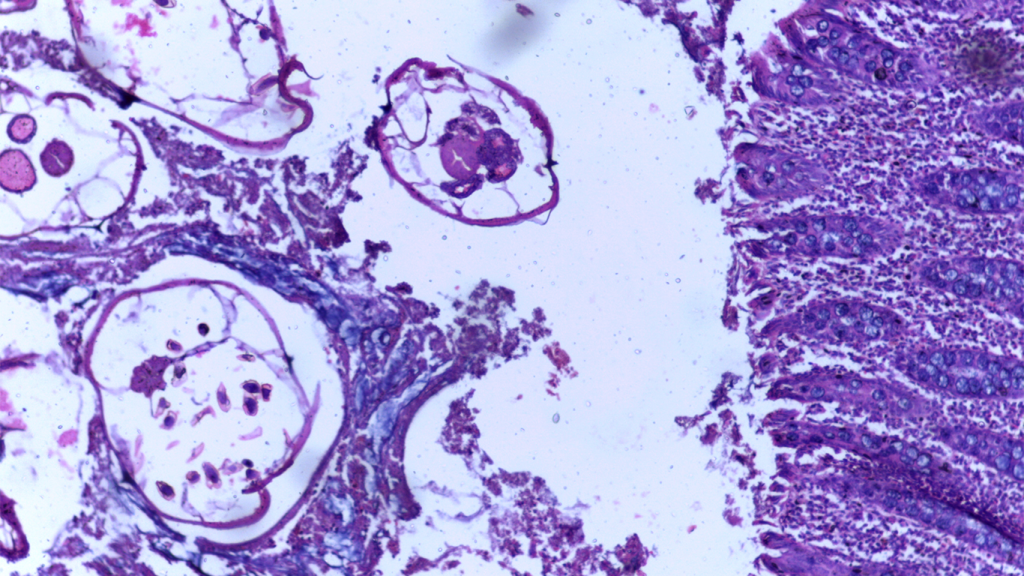Our programme has continued its work in the field of imported parasitic diseases. Regarding Chagas disease, we are actively working to identify new compounds with anti-Trypanosoma cruzi activity, but some of those with promising in vitro activity have not to date shown efficacy in pre-clinical models (1,2).
Regarding intestinal worm infections, our studies in Southern Mozambique combining PCR and geostatistical methods reveal a higher prevalence of these infections than that estimated by conventional methods (3). Our joint efforts with the malaria programme suggest that the immune response elicited by these intestinal parasites may facilitate malaria infections and vice versa (4). Our work on leishmaniosis, a parasitic disease transmitted by sandflies, provided important insights into the diagnosis and characteristics of cases in Catalonia and in Bolivia (5,6). Finally, the migrant health team developed and tested a new digital tool that makes it possible to increase the screening and diagnosis of infectious diseases such as HIV, hepatitis B and C, Chagas disease and strongyloidiasis among migrants in a primary care setting, on the basis of the patient’s characteristics (7).

-
Martinez-Peinado N. Int J Mol Sci.
-
Martinez-Peinado N. Microorganisms.
-
Grau-Pujol B. Plos Negl Trop Dis.
-
Santano R. Microbiology Spectrum.
-
Fernández-Arévalo. Transbound Emerg Dis.
-
Ballart C. Plos Negl Trop Dis.
-
Sequeira-Aymar. J Travel Med.











